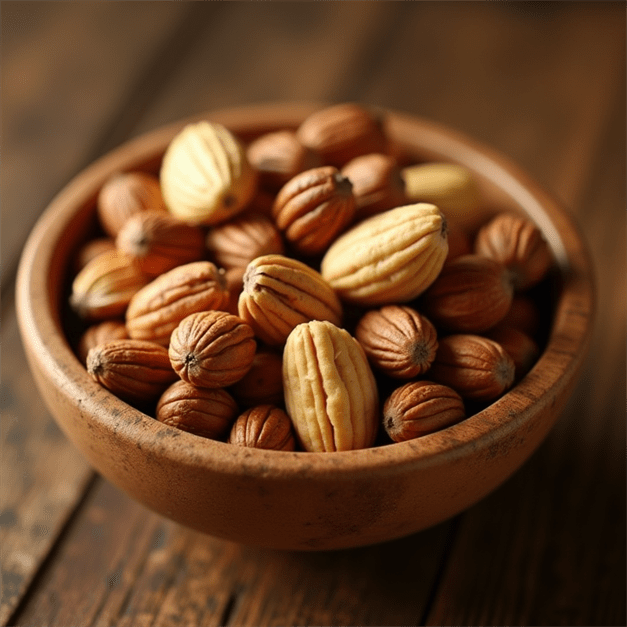The Truth About Fat Burning Foods: Why Your Metabolism Needs Balance, Not Magic
I’ve watched more YouTube videos about “fat-burning foods” than any sane person should, and after scrolling through approximately 847 thumbnails featuring impossibly shredded fitness influencers holding green tea like it’s liquid gold, I had to laugh.

These videos all promise the same thing: eat these magical foods and watch your belly fat melt away like butter on hot toast.
Here’s what nobody’s telling you in those perfectly edited videos: your metabolism doesn’t care whether you’re eating “superfoods” or regular old food. What it cares about is whether you’re consistently nourishing your body in a way that supports stable blood sugar, satisfies your hunger hormones, and doesn’t send you into full-blown restriction mode.
I learned this the mortifying way back in 2018 when I tried to live off the “top 10 fat-burning foods” for two weeks—green tea, chili peppers, Greek yogurt, eggs, and enough spinach to feed a small rabbit colony.
Guess what happened? I was so hangry by day three that I snapped at a patient who asked for extra pillows.
The Green Tea Mythology (And Why Your Gut Is Laughing)
Every single one of these videos starts with green tea. Catechins this, EGCG that, thermogenesis blah blah blah. Sure, green tea has mild metabolic benefits—about as much as walking to your mailbox.
The real problem is what happens when you start chugging green tea instead of eating actual meals. Your stomach-acid production goes haywire, cortisol spikes from all that caffeine, and you end up more wired than a teenager before prom.
Meanwhile, your hunger hormones stage a full revolt because liquid calories don’t trigger the same satiety signals as solid food.
Here’s what I tell my clients about green tea: drink it because you enjoy it, not because you think it’s going to transform your midsection. Your metabolism is far more interested in whether you’re eating enough protein to maintain muscle mass and enough carbohydrates to keep your thyroid happy.
The Protein Obsession (Getting It Right This Time)
Now, the YouTube crowd does get one thing right about protein. Eggs, Greek yogurt, and lean meats do help with satiety and muscle preservation.
But here’s where they go sideways: they act like you need to eat nothing but protein to see results.
I had a client, Janet, who got so caught up in this protein-only mentality that she was eating six egg whites for breakfast and wondering why she was face-first in a sleeve of crackers by 3 PM. Her blood sugar was on a roller coaster that would make Six Flags jealous.
The truth about protein is this: it works best when it’s paired with some carbohydrates and fat. Your body needs all three macronutrients to function properly, and when you try to isolate just one, you’re fighting against millions of years of human evolution.
A better breakfast? Two whole eggs (yes, keep the yolks—they contain choline for brain function) with avocado on whole-grain toast. Now you’ve got protein for satiety, fat for hormone production, and carbs to keep your brain functioning above the level of a hungry toddler.
The Chili Pepper Fairy Tale
Oh, the capsaicin claims. Apparently, if you eat enough chili peppers, you’ll burn calories like a furnace. The research shows a whopping increase of maybe 50 calories per day—if you eat enough hot sauce to strip paint.
Meanwhile, spicy food can trigger reflux, disrupt sleep, and for some people, actually increase appetite. I watched my neighbor try the “cayenne pepper weight-loss trick” and spend three days looking like she’d been pepper-sprayed.
Want to know what actually burns 50 extra calories? Walking for ten minutes. Revolutionary, I know.
The Real Science Your YouTube Gurus Won’t Mention
- Muscle mass, sleep quality, and stress levels drive your resting metabolic rate.
- Severe calorie restriction—“clean” foods or not—slows metabolism fast.
- Insulin responds to overall energy balance, not blueberries vs. strawberries.
Researchers at Stanford and Baylor recently published in Cell that ordinary fat-burning creates compounds called “beta-hydroxybutyrate–amino-acid conjugates.” These molecules signal your brain’s appetite center and naturally reduce hunger—proof that your body already knows how to regulate itself when you fuel it consistently.
What Actually Works (No Thumbnails Required)
After 15 years watching people chase superfood trends, here’s what creates lasting results:
- Eating regular balanced meals with protein, carbs, and fat.
- Sleeping 7–9 hours so leptin and ghrelin stay in check.
- Moving your body because muscle tissue regulates blood sugar.
- Managing stress—cortisol packs fat around your midsection faster than green tea can “strip” it.
The Bottom Line (Without the Hype)
Those YouTube videos aren’t entirely wrong about eggs, Greek yogurt, and vegetables being good for you; they’re wrong about why.
These foods help because they’re nutrient-dense, satisfying, and don’t launch your blood sugar into the stratosphere—not because they wield magical fat-melting powers that defy thermodynamics.
Stop searching for foods that burn fat. Start seeking eating patterns that support your body’s natural ability to regulate hunger, maintain muscle, and keep energy steady all day.
Your metabolism doesn’t need to be hacked by the superfood of the week—it needs consistent nourishment and balanced fat burning foods.
